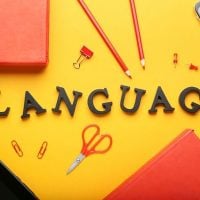Deadline: 30-Sep-20
This call for proposals is based on the European Parliament (EP)’s multiannual work programme for grants in the area of communication (2020-2021).
The principal objective of this call for proposals, as per the objectives of the multi-annual work programme for grants, is to contribute to raise citizens’ awareness of the role and democratic values of the European Union by promoting strategic engagement with EU citizens via three different channels: civil society engagement, community engagement and youth engagement.
The global key performance indicators to measure the achievement of the principal objective of the call for proposals are the number of communication actions co-financed and the hours of attention (estimated exposure) generated by the co-financed actions.
Categories
- Civil society engagement actions refers to actions implemented by civil society organisations and other multiplier networks to communicate to citizens about the EU, the role of the EP and its democratic values and to support democratic engagement. Such actions should also provide citizens and/or civil society representatives with an opportunity to discuss EU-related topics in the Member States and encourage participants to become active members of the “together.eu” community.
- The topics of the actions should be relevant to the intended target audience, and linked to the political and legislative priorities of the EP, for example:
- The post-COVID 19 recovery plan.
- The environment, social policies, digital transformation, health, etc.
- The conference on the future of Europe.
- Value of the EU and prizes of the EP.
- Youth engagement actions refer to communication actions targeting specifically youth (people aged 16-30) along existing youth outreach activities organised by the EP in a consistent manner (biennial European Youth Events, Youth seminars, Euroscola and the European Parliament Ambassadors School programme). The purpose of youth engagement actions is to encourage young people to participate in democratic life, to give them the opportunity to understand their rights as European citizens and facilitate a genuine dialogue between them and the European Parliament.
- The activities supported include but are not limited to:
- Organisation of a local European Youth Event, ensuring consistency with past European Youth Events, including a participants’ registration system, a participants’ feedback system, logistics and security, etc.
- Development of a programme in a spirit of co-design and co-creation with young people, for example through partnerships with a number of youth organisations;
- Inviting speakers who can debate with young people on various issues from both local and European perspectives, such as policy experts, MEPs, etc.
- Communication strategy outlining how it is foreseen to maximise the visibility of the event via a mix of media, including on dedicated online channels before and after the event, e.g. through social media and specific tools such as videos;
- Promotional and welcome kit based on the EYE visual identity adapted to the local context.
- The Conference on the future of Europe, organised by the European Parliament, the European Commission and the EU Council, will aim at defining the future shape and form of the EU. According to the EP position adopted in January 2020, the Conference should be built on citizen participation involving a cross-section of society, and specifically focus on “ensuring youth participation (that) will be an essential part of the long-lasting impacts of the Conference”. The conclusions of this process are expected to be presented to the EP delegation to the Conference by mid-2021.
- The EP envisages to award grants supporting (but not limited to) the following activities:
- Organisation and reporting of local and/or national youth consultations and side events of the Conference process across the EU;
- Online and offline Communication actions to promote the process of the Conference, spread information about youth consultations and all the side events to the Conference;
- Online and offline communication actions about the result and the impact of conducted consultations, with an aim to ensuring that young people’s ideas and suggestions are heard and taken into account by the Conference;
- Organisation of surveys and other kinds of opinion monitoring among young people, especially in the communities that are not easily accessible (for example, disadvantaged groups of any kind and non-urban communities).
- Action category 1: Civil society engagement
- Grant amount: EUR 1,320,000
- Actions should start at the earliest on 1 December 2020 and should end at the latest on 30 June 2022.
- Action category 2: Organisation of a local European Youth Event to contribute to youth engagement
- Grant amount: EUR 60,000
- The action should start at the earliest on 1 December 2020 and end at the latest on 31 December 2021.
- Action category 3: Youth engagement on the Conference on the future of Europe
- Grant amount: EUR 1,260,000
- The actions should start at the earliest in November 2020 and end at the latest on 30 June 2022.
Eligiblity Criteria
- A legal person constituted and registered as a legal entity for at least one year at the time of application;
- Non-profit;
- Based in one of the Member States of the European Union or the United Kingdom.
For more information, visit https://www.europarl.europa.eu/contracts-and-grants/files/grants/media-and-events/comm-subv-2020-e/call_for_proposals_engagement_2020_comm-subv-2020-e.pdf









































